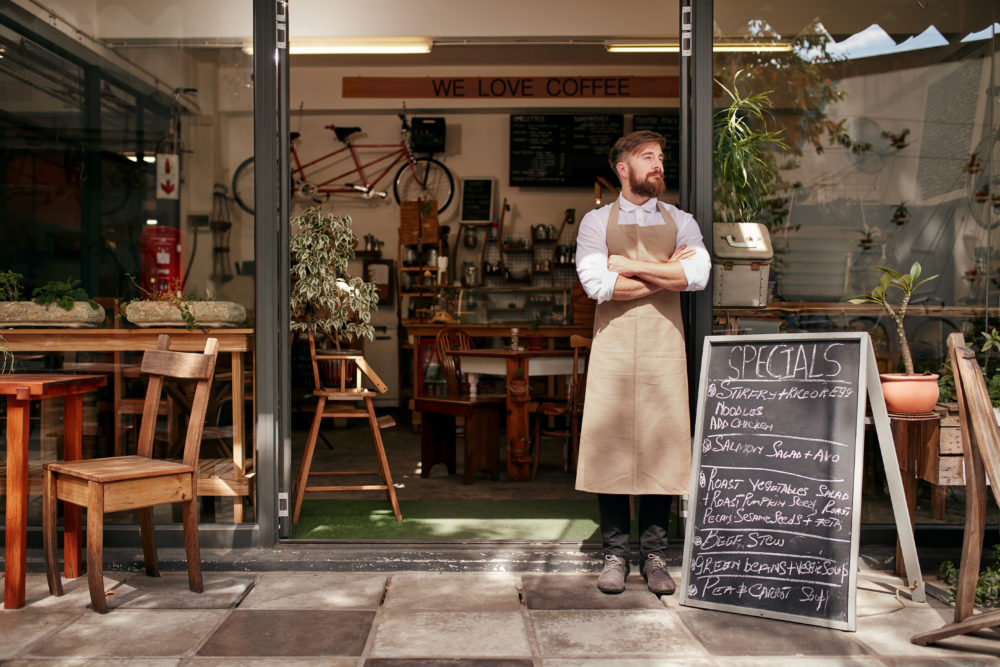In today’s business landscape, running a brick and mortar shop is a serious challenge. Faced with competition from online, a lower footfall on the high street, and an uncertain economic and political climate, retailers have to be more innovative and focused if they want to run a shop successfully.
But if you run a lean business and have a truly compelling offering, there are real opportunities to be had. Here, we look at how to run a shop, drawing on first-hand accounts from three retail business owners.
Baby gifts retailer The Bump Company was set up by Debbie Dyke with her sister in 2009, and the business was initially run from their kitchen table.
‘When we set the business up we wanted to create a product that was unique, so we began creating our own range of baby bouquets using organic cotton baby clothes,’ she says. ‘We have added a variety of other products as we have grown but our bouquets are still our best sellers.’
‘As a very small business it was satisfying to work out that we have supplied our gifts to half of the FTSE 100 companies!’
Dyke says that their biggest opportunity came in 2015 when they moved from being a home-based business to having their own premises. ‘This allowed us to continue with the online business but also have a shop area to showcase our range of gifts and a dedicated studio space where we could handcraft our gifts and develop new product ideas.’
Speed of delivery
Dyke knew from very early on that speed of delivery is very important to customers when sending a new baby gift. In order to be able to compete with other gift suppliers, the decision was taken to introduce a next-day delivery service. ‘This is no mean feat when you are producing handcrafted items,’ Dyke says. Another member of staff was taken on to work on building the company’s stock levels so it could offer a next-day service and as soon as it became available, and the company’s sales increased.
Dyke’s main piece of advice to other retail businesses would be to ensure they have a presence on as many channels as possible. ‘Having a good website is a start but you need to make the most of opportunities on social media, partner sites and in relevant press and magazines. It doesn’t matter how wonderful your shop or website is if you aren’t driving traffic or customers there!’
A more focused product range
Gary Murray, eCommerce director at Hartlepool-based Leader Doors, says that in the past, the company struggled by having too wide a range of products. ‘This meant we spent lots of time adding and editing product ranges while never really mastering one,’ he says.
Since then, the company has cut a lot of its range, focusing on more select products. ‘This has allowed us to ensure what we do sell is the best it can be.’ The company has also boosted its online performance by focusing on promoting them through pay-per-click accounts with Google AdWords. ‘This is generally the biggest driver of traffic and revenue on our websites,’ Murray says.
The company also introduced a new operations director, which has allowed each team to grow and ensured everyone is working toward the same goals.
“If you have a compact product range, you can ensure your offering is the best it can be”
‘I would say that good management leads to good output from each team, which therefore adds to the output from each area of the business. We are in a much more profitable position since then, with higher revenues and increasing profit margins as well.’
In terms of advice for other small shop owners, Murray says picking a product range, focusing on it and not spreading yourself too thin is critical to success. ‘If you have a compact product range, you can ensure your offering is the best it can be. For us, it has meant that in some areas we’re now well ahead of the competition.’
Andy Carr is owner of Spoon Customs – an alpine custom road bike company, which up until recently was wholly based in the Alps, and a small bike workshop called Orange Row Speed Shop, in Brighton.
Customer service commitment
He says that key to boosting the company’s fortunes has been a commitment to customer service that bigger bike shops, with the pressures of moving stock and volume orientated trade, don’t have the business model to be able to deliver. ‘We take our time, and do it right,’ he says. ‘Because the workshop serves my other business too – which is also low volume – the overhead is spread over the two areas, meaning we have permanent access to a well-equipped professional shop, and can also offer that same level of care to local cyclists too.’
The main example of change that’s helped the business grow is getting closer to the customers, Carr says. ‘It was idyllic living in the mountains and the proximity to world class riding has paid dividends in terms of development of the end product, being right near my entire supply chain was also really important early on too, but now we’re up and running, I can’t justify being so far from my customer,’ he says.
‘They want me here, to talk through their requirements, be on hand for press and marketing opportunities, and to reassure about the process and provide an actual place to come to, to see bikes and kick the tyres. We still spend lots of time in the mountains, but the balance is here now. With the customers.
For your shop to succeed, you have to do something you love and do it well, Carr says. ‘To some extent you have to be flexible to, to forget what you think people want, and give them what they want, geographically, physically, or from a service point of view.
‘Be present and take your time over work, and I believe you’ll build a reputation which will keep you busy enough to keep doing the things you love.’
Summary tips for a successful small shop
- Address a local need
- Customer service is king
- Keep your product range focused
- Get your delivery process right
- Keep a keen eye on stock management





